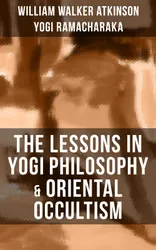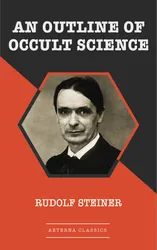The Great Learning is the first of the Four books which were selected by Zhu Xi during the Song Dynasty as a foundational introduction to Confucianism. It was originally one chapter in Classic of Rites. The book consists of a short main text, attributed to Confucius, and nine commentaries chapters by Zeng Zi, one of Confucius' disciples. Its importance is illustrated by Zeng Zi's foreword that this is the gateway of learning. Some of the terms within the text form an important part of both classical and modern Chinese political discourse. For example, the concept of world peace has been the stated goal of Chinese statecraft from the Zhou dynasty to the Kuomintang to the Communist Party of China. Another term used in the text qin-min which Legge translates as renovating the people is the name of the People First Party, one of the minor parties in Taiwan. The Great Learning is significant because it expresses many themes of Chinese philosophy and political thinking, and has therefore been extremely influential both in classical and modern Chinese thought. Government, self cultivation and investigation of things are linked. It links together individual action in the form of self-cultivation with higher goals such as ultimate world peace as well as linking together the spiritual and the material. By defining the path of learning (tao) in governmental and social terms, the Great Learning both links the spiritual with the practical, and creates a vision of tao that is radically different than that presented by Taoism. In particular, the Great Learning sets Confucianism as being this-worldly rather than other-worldly. Instead of basing its authority on an external deity, the Great Learning bases its authority on the practices of ancient kings. The text also sets up a number of controversies that have underlain Chinese philosophy and political thinking. For example, one major controversy has been to define exactly the investigation of things. What things are to be investigated and how has been one of the crucial issues of Chinese philosophy.

Elijah's Cup: A Family's Journey into the Community and Culture of High-Functioning Autism and Asperger's Syndrome
Valerie Paradiz
book
Whole Self : A Concise History of the Birth & Evolution of Human Consciousness
Kendrick Mercer
audiobook
Land of the Fallen Star Gods : The Celestial Origins of Ancient Egypt
J. S. Gordon
book
Dirty Money : The Economics of Sex and Love
Marina Adshade
book
Psychology : An elementary Text-Book
Hermann Ebbinghaus
book
The Essence of Hegel's Philosophy : Phenomenology of Mind, Philosophy of Mind, Aesthetics, The Criticism of Hegle's Work and Hegelianism by Schopenhauer & Nietzsche, Biography
Georg Wilhelm Friedrich Hegel
book
Dreamtimes and Thoughtforms : Cosmogenesis from the Big Bang to Octopus and Crow Intelligence to UFOs
Richard Grossinger
book
THE LESSONS IN YOGI PHILOSOPHY & ORIENTAL OCCULTISM : The Mental & Spiritual Principles
William Walker Atkinson, Yogi Ramacharaka
book
An Outline of Occult Science
Rudolf Steiner
book
Merchants of Truth : The Business of News and the Fight for Facts
Jill Abramson
audiobookbook
It's So Much Work to Be Your Friend: Helping the Child with Learning Disabilities Find Social Success
Richard Lavoie
book
Making the Ordinary Extraordinary : My Seven Years in Occult Los Angeles with Manly Palmer Hall
Tamra Lucid
book




